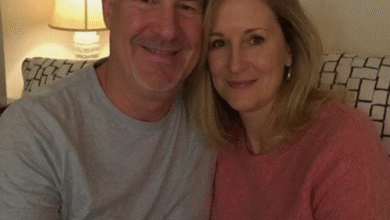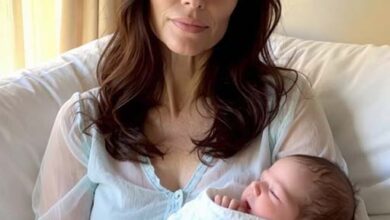Story
A Wedding, A Wheelchair, and a Hard-Learned Lesson in Love

When I was 17, my life changed in an instant. A car accident left me paralyzed from the waist down, and since then, I’ve used a wheelchair every day. It wasn’t an easy adjustment, but over time, I learned to live fully and confidently — to see the chair not as a limitation, but as a symbol of resilience and survival.
Now, at 29, I’m proud of the person I’ve become. That’s why what happened last week with my sister hurt more than I could’ve imagined.
My sister, who’s 27, is getting married soon. She’s been planning her wedding for months, obsessing over every tiny detail — from the lace on her dress to the vintage decorations. I was genuinely excited for her. I love her deeply and wanted her day to be beautiful. But then, during a family visit, she pulled me aside and said something that left me speechless.
She started with, “Hey, can we talk about the ceremony for a second?” I smiled and said sure, assuming she wanted help with logistics. But then she said softly, “Your wheelchair… it doesn’t really match the vintage aesthetic we’re going for.”
At first, I thought I’d misheard her. Then she continued, “Is there any way you could maybe not use it for the ceremony? Just for one day?”
I froze. “You mean… not use my wheelchair?” I asked.
She nodded, as if she were suggesting something simple and harmless. “Maybe you could rent a more decorative chair or something?”
That’s when it hit me. She wasn’t joking. I tried to stay calm, but I couldn’t believe what I was hearing. I told her, “I can’t just ‘switch chairs.’ I’m not mobile. This isn’t a fashion accessory — it’s how I move.”
She sighed, frustrated, and said, “Well, maybe you could sit in the back during the ceremony, or just skip the photos. It’s just one day, and I want everything to look perfect.”
That was it. I snapped. “Do you hear yourself? You’re asking me to hide because my wheelchair doesn’t fit your theme. Do you think I can magically walk for a day?”
She started to cry and accused me of not compromising. Then, in anger, she shouted, “If you won’t help make this work, then don’t come at all!”
I looked her straight in the eyes and said quietly, “Okay. If I’m not coming, then I guess I won’t be giving you a wedding gift either.” Then I left.
What she didn’t know — what only our mom knew — was that I had been saving for months to surprise her with an all-expenses-paid honeymoon. I wanted her to have something unforgettable. But after that conversation, I couldn’t bring myself to go through with it.
A few days later, my mom called and said my sister had asked about the gift. I guess Mom told her. Soon after, my sister showed up at my place in tears, apologizing and saying she didn’t mean what she said. She begged me to come to the wedding.
I listened, but inside, I felt this heavy ache. Her words about my wheelchair weren’t just careless — they touched something deeper. For years, I worked to accept myself again after the accident, to stop feeling like a burden. And hearing my own sister imply that I was an eyesore brought back every insecurity I thought I’d left behind.
I took a few days before responding. When I finally did, I told her calmly, “I forgive you, but that doesn’t mean I’ll pretend nothing happened.” I explained how her request made me feel invisible — not just unwanted at the wedding, but unwelcome in moments that were supposed to be shared with love and pride.
For the first time, she really listened. Her expression softened, and she admitted she hadn’t realized how cruel her words were. She promised that my wheelchair would not only be included but that she’d stand by me proudly — no hiding, no shame.
I agreed to attend the wedding, not for appearances, but to remind both of us what family should mean. As for the honeymoon gift, I told her gently, “You’ll get it when kindness, not convenience, guides your choices.” She nodded through tears, understanding completely.
In the end, this experience changed more than just our relationship. It reminded me that sometimes, the hardest moments in family life aren’t about disagreements or mistakes — they’re about whether we choose compassion over perfection, empathy over ego, and love over appearances.
And when we do, those choices become the most beautiful part of any celebration.
Disclaimer: All stories published on this website are for entertainment and storytelling purposes only. They do not have an identified author and are not claimed to be based on real events or people. Any resemblance to actual persons or events is purely coincidental.



